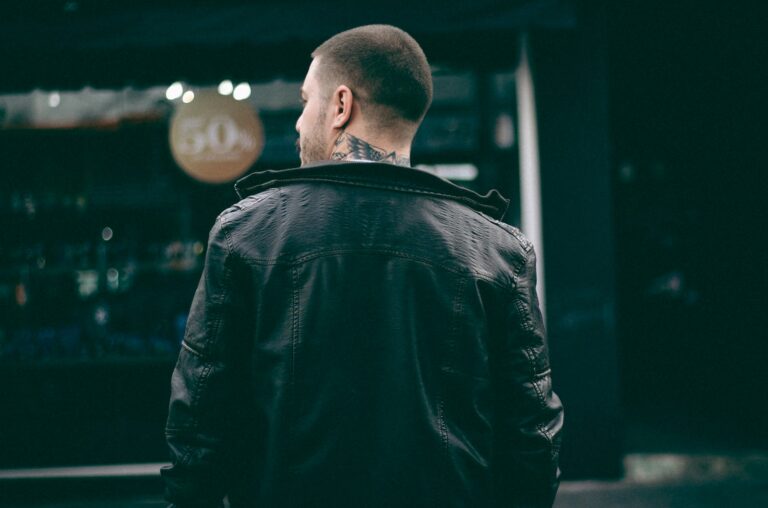Feeling caught between your ex and your current partner is an emotional dilemma many people face. Whether your past relationship ended suddenly, or you’re trying to move forward with a new partner, being torn in half emotionally can feel overwhelming and even isolating. This in-depth guide explores the psychology behind why we get stuck between relationships, how to navigate these mixed emotions, and actionable steps to find clarity, peace, and personal growth.
Why Do We Feel Torn Between an Ex and a Current Partner?
Relationships are deeply rooted in our sense of identity, attachment, and emotional security. It’s not uncommon to feel unresolved emotions towards an ex, even after starting a new relationship. But what drives this nagging feeling of being split in two?
Understanding Attachment Bonds
Attachment theory explains how our early experiences shape the way we connect and bond with partners. If your previous relationship was significant, it formed an attachment bond that might not dissolve instantly with a breakup. Emotional residue—like longing, nostalgia, or even regret—can linger, confusing your present emotional state.
Nostalgia and Selective Memory
Closure doesn’t always come easily. When facing stress or conflict in your current relationship, your mind may romanticize the past. You might recall only the good times with your ex, forgetting pain or incompatibility. This cognitive distortion fuels indecision and emotional conflict.
Fear of Loss and the ‘Grass is Greener’ Syndrome
Sometimes, it isn’t the ex themselves, but the loss of familiarity, comfort, and the dreams you built together. Fears of making the wrong choice—or losing something irreplaceable—often make it difficult to fully invest in your new relationship.
The Psychological Cost of Being Emotionally Split
Being torn between relationships can have subtle but profound impacts on your mental health and well-being:
- Chronic Anxiety: Indecision breeds anxiety, leaving you stuck in a loop of overthinking.
- Difficulty Trusting: Divided loyalties can interfere with your ability to trust yourself and your partner.
- Stunted Growth: If you’re emotionally preoccupied with the past, it’s harder to be present and grow with someone new.
- Guilt and Shame: Feeling like you’re betraying one or both partners causes emotional guilt, which can damage self-esteem.
Signs That You Haven’t Fully Moved On
Sometimes it’s hard to know whether you’re truly ready for new love. Here are some indicators that you may still be emotionally entangled with your ex:
- You frequently compare your current partner to your ex, favorably or unfavorably
- You think about reaching out or check up on your ex on social media
- You minimize your ex’s faults and idealize your past together
- Arguments with your current partner quickly remind you of your old relationship
- You feel guilty about being happy or moving on
If these signs resonate with you, it’s okay—healing takes time, and awareness is the first step toward growth.
What Makes Moving On So Challenging?
Let’s look deeper into why letting go—internally and emotionally—is so difficult, even if your mind tells you it’s time to move forward:
Unfinished Emotional Business
Breakups rarely bring full closure. If apologies weren’t offered, boundaries weren’t set, or reasons felt unclear, you might carry an emotional burden that keeps you anchored to your ex.
Loss of Identity
In long or intense relationships, our sense of self can merge with our partner’s. When the relationship ends, it can feel like losing a part of yourself—making it hard to invest wholeheartedly in someone new.
Fears About the Future
New relationships can feel uncertain and risky, especially if you’ve been hurt before. Old patterns of attachment and trust may hold you back, making the past feel safer than the unknown.
Steps to Resolve Indecision and Heal
If you feel torn between your ex and your current relationship, you’re not alone—and there are actionable steps you can take to gain clarity and foster healing. Here’s a structured approach to move forward:
-
Get Honest About Your Feelings
It’s vital to approach your emotions without judgment. Write about your feelings, talk to a trusted friend, or seek therapy. Understanding your underlying desires—love, closure, security—can help untangle your emotions.
-
Limit—or Cut—Contact with Your Ex
Ongoing communication with your ex can keep emotional wounds open. Consider establishing boundaries or taking a break from conversation or social media interaction, at least until your feelings stabilize.
-
Reflect on What Your Ex Symbolizes
Sometimes it’s not about the ex, but what they represent: comfort, past dreams, unresolved needs, or fear of change. Identify these symbolic attachments to better understand your emotional landscape.
-
Reconnect with Yourself
Rediscover your identity outside of any relationship. Pursue hobbies, build friendships, and remind yourself of your own strengths and aspirations.
-
Communicate Openly With Your Current Partner
You don’t have to overshare details, but do be honest if you’re struggling to be fully present. Vulnerability can foster intimacy and understanding, even when the conversation is difficult.
-
Seek Professional Support
Talking to a therapist helps process complex emotions more safely. Therapists can offer perspectives and coping strategies tailored to your unique situation.
-
Be Patient and Kind With Yourself
Healing is not a linear process. Recognize that feeling stuck or confused is part of the journey, and offer yourself the same compassion you would a friend.
How to Strengthen Your Current Relationship While Healing
Being torn doesn’t mean your current relationship is doomed. With intention and empathy, you can nurture the present while making peace with the past. Here’s how:
- Prioritize Emotional Honesty: If your partner senses you’re distant, acknowledge it gently. Reassure them it’s about your healing, not their shortcomings.
- Create New Experiences Together: Explore new places, activities, and rituals as a couple to build fresh, positive memories unclouded by old associations.
- Build Trust Daily: Small acts of reliability and affection can slowly rebuild intimacy and sustain commitment, even when emotions are complicated.
- Check In With Each Other: Make emotional check-ins a regular part of your relationship, especially during stressful or triggering times.
- Respect Boundaries On Both Sides: Allow yourself and your partner the space to process emotions without pressure to have quick answers.
When Might Revisiting the Past Be Productive?
In rare cases, finding yourself torn between your ex and current partner can signal unresolved potential. Before taking any drastic steps, however, consider:
- Have you and your ex both visibly grown or changed since your breakup?
- Was your breakup circumstantial, rather than fundamental incompatibility?
- Are your feelings for your current partner lukewarm or unresolved, despite effort?
Even so, approach with caution and clarity—consulting a counselor or therapist can help you sort out transient nostalgia from genuine compatibility.
The Role of Closure: Finding Peace With the Past
Closure isn’t always an active dialogue; often, it’s an internal acceptance that things ended for a reason. Consider these techniques:
- Rituals of Goodbye: Write a letter to your ex (don’t send it), expressing everything unsaid.
- Mindfulness Meditation: Use mindfulness techniques to process emotions nonjudgmentally and reduce mental ‘replays’ of the past.
- Gratitude Journaling: Focus on what your current relationship, or your single life, brings you today.
True closure enables you to honor what you shared with your ex, while opening space in your heart and mind for new experiences.
How to Know You’re Ready to Move On
No healing journey is identical, but you may notice you’re making progress when:
- Your thoughts about your ex feel neutral rather than charged with emotion.
- You no longer compare your current and past relationships as a default reaction.
- You feel comfortable being vulnerable and honest with your present partner.
- Your sense of self isn’t contingent on relationship status or history.
- Disagreements in your current relationship don’t trigger old wounds.
Cultivating Self-Compassion
One of the most overlooked elements in moving on is self-compassion. Often, we berate ourselves for struggling or feel guilty for emotional confusion. Instead, practice:
- Speaking to yourself as you would a cherished friend
- Recognizing your emotional struggles are human, not a sign of failure
- Allowing yourself time and space to heal without demanding quick resolutions
Seeking Professional Support: When to Reach Out
If emotional conflict feels unmanageable, or if it’s impacting your mental health and daily life, seeking therapy can be transformative. A therapist won’t tell you whom to choose, but will:
- Help you explore your emotions without judgment
- Guide you in identifying patterns that may sabotage new relationships
- Provide tools to heal attachment wounds and build healthier bonds
You don’t have to struggle alone. Support is a sign of strength, not weakness.
Moving Forward With Integrity and Insight
Being torn between an ex and a current relationship is a uniquely human struggle—and also an opportunity. By facing your feelings, practicing self-awareness, and making space for healing, you set the foundation for deeper love and understanding in the future.
Regardless of which path you choose, honor your journey as one of growth. Every chapter, past and present, holds insight that can guide you toward a more authentic, joyful life.




